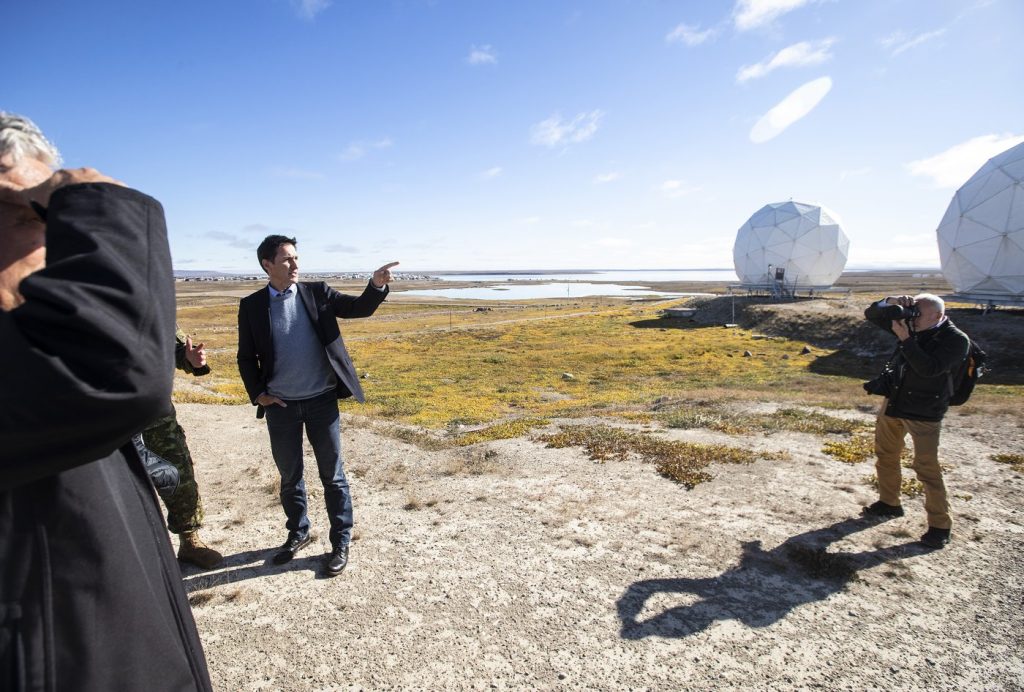OTTAWA — Canada’s spy agency, the Canadian Security Intelligence Service (CSIS), has issued a warning highlighting that a convergence of global developments is making the Arctic an "attractive, strategic, and vulnerable destination" for foreign adversaries aiming to establish a presence in Canada. A new assessment from CSIS identifies various factors, including environmental changes, critical infrastructure vulnerabilities, economic activities, and shifting geopolitical dynamics, that heighten the region's susceptibility to foreign threats.
The assessment flags the expansion of resource extraction projects, rising ship traffic, port construction, and the potential militarization of the Arctic as pathways that malicious actors could exploit to gain influence. It is suggested that, once established, foreign rivals could leverage these developments for significant influence and interference in Canadian Arctic affairs.
Acquired by The Canadian Press through the Access to Information Act, the CSIS report titled "Issues & Vulnerabilities in Canada’s Arctic," produced in April 2023, is considered the most comprehensive public documentation of the agency's concerns over espionage and foreign interference in the Arctic region to date.
The report indicates that melting sea ice resulting from climate change is likely to increase human activity in the Arctic, opening new shipping routes and spurring further exploitation of mineral resources. CSIS warns that these natural resources, particularly oil and gas reserves, are significant targets for foreign investment, which could jeopardize regional interests and security. "Threat actors could leverage resource exploitation to gain persistent access to remote and strategically valuable territory," the report states.
In addition, the CSIS brief points out several vulnerabilities, such as:
- The difficulty and expense involved in addressing vulnerabilities in crucial telecommunications systems in the North, which can create serious cybersecurity risks;
- Foreign actors finding attractive locations for deepwater port construction that could threaten Canadian border security;
- Adversaries making substantial investments under the guise of addressing energy supply-chain disruptions, but with ulterior motives;
- The potential for the presence of hostile state armed forces to escalate militarization in the Arctic, increasing geopolitical tensions and the risk of conflict.
CSIS emphasizes that any of these vulnerabilities could be exploited by foreign adversaries or exacerbated by ostensibly benign activities in the region. The report suggests that harmful activities in the Arctic, regardless of intent, could have devastating consequences for the indigenous populations, ecosystems, and national interests in the region.
Over the last 15 years, the economic and strategic significance of the Arctic has been on the rise, according to CSIS spokesperson Lindsay Sloane. Threats to the Arctic are multifaceted, stemming from not only military capabilities of strategic competitors and the impacts of climate change but also increasing foreign espionage and illicit economic activities that pose serious national security risks. Sloane specifically pointed to the historical military threat posed by Russia and the growing interest of China in the Arctic region, noting, "CSIS continues to detect, deter, and counter foreign interference activities by hostile states targeting the Arctic."
The Canadian government’s foreign policy for the Arctic, released late last year, emphasizes that Canada is at a critical juncture in the region. Foreign Affairs Minister Mélanie Joly remarked that Russia's invasion of Ukraine has made cooperation with Moscow in the Arctic "exceedingly difficult for the foreseeable future." Concurrently, non-Arctic states, including China, are seeking to enhance their influence over Arctic governance, prompting Canada to prioritize collaboration with its allies.
On Thursday, Defence Minister Bill Blair is scheduled to visit Iqaluit to make an announcement regarding the Canadian Armed Forces' activities in the Arctic. In a move reflecting increasing political attention to Arctic security, Conservative Leader Pierre Poilievre has proposed the construction of a new military base in Iqaluit as part of his party's security plan. Nunavut Premier P.J. Akeeagok welcomes this attention but insists that decisions regarding Arctic security must include significant input from northern residents.
Akeeagok stated that Nunavut looks forward to cooperating with Canada’s next prime minister on meaningful investments that will address Arctic sovereignty and security objectives, meet NATO funding commitments, and unlock the region's economic potential. Furthermore, Sloane indicated that CSIS collaborates with territorial, provincial, local, and Indigenous governments to address threat activities in the Arctic, aiming to enhance resilience against current and emerging threats.










